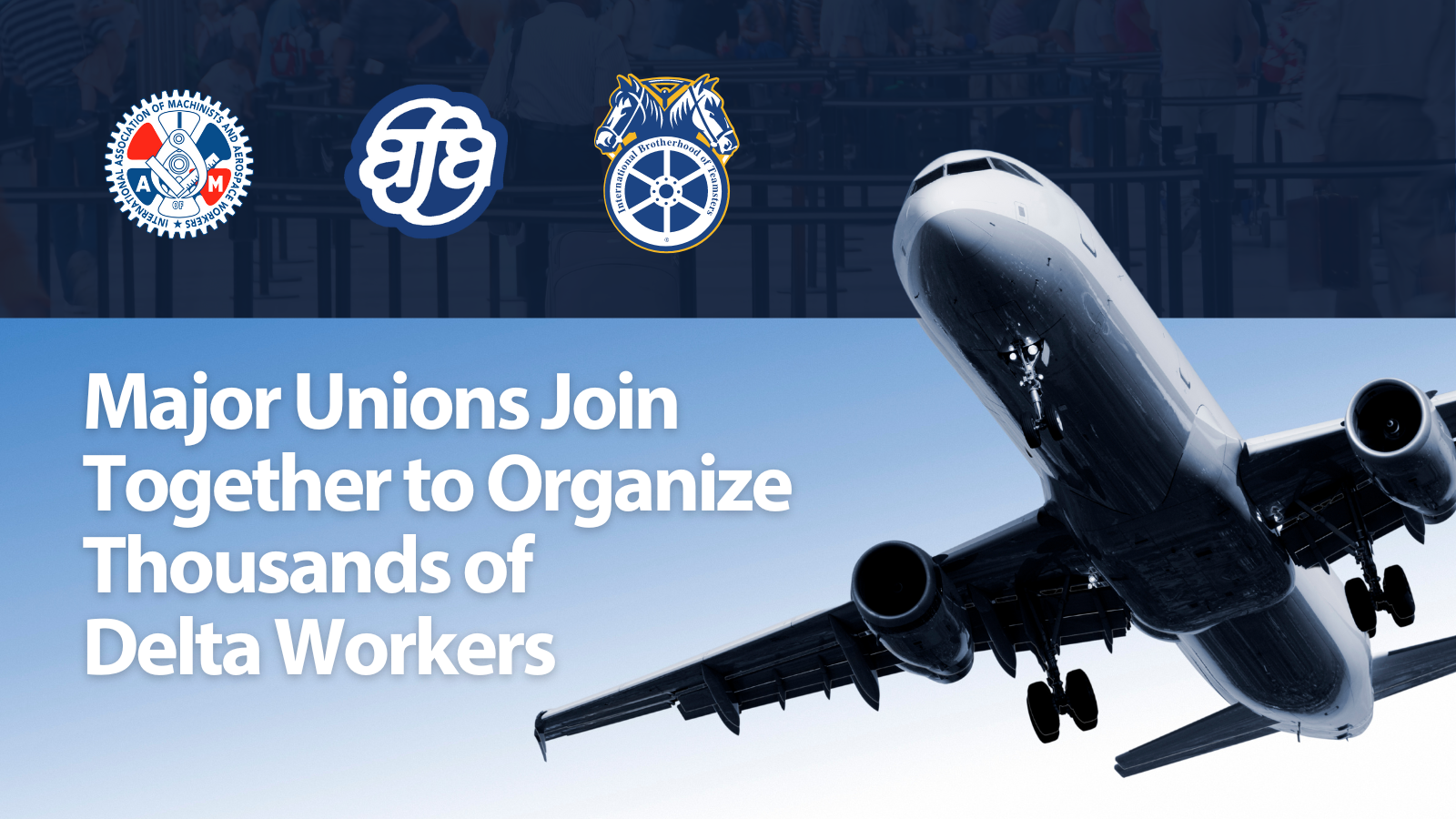This article was originally written for the Delta Workers Organizing Committee newsletter, Blue Notes, by Pat G (Delta ramp worker and TCDSA member). While it is specific to Delta Air Lines, we include it here because a great number of generalized conclusions can be drawn from it. One ruling class myth is that somehow Wall Street and stock ownership is part of a great democratic network existing in the U.S. Pat’s article exposes this and correctly links it to working class oppression.
Who Are Delta Air Lines Shareholders?
Over the years, Ed Bastian and Delta Air Lines executive leadership have made countless appearances on outlets like CNBC’s “Squakbox.” During those segments, they frequently discuss how important the shareholders are to Delta’s culture in the same breath as workers and customers. What they fail to mention is who those shareholders are and what their interests are.
When most people think about the stock market and its ownership, they think of their investments of 10 shares here, 30 shares there, or employee purchase plans for long-term investing. The thought that hundreds of thousands of individuals own Delta’s stock is idyllic but far from the truth. Over 78% of Delta’s shares are held by institutions, with Vanguard and BlackRock being the largest holders. Institutions like these aim to extract as much profit from their investments as possible, leaving no room for a moral compass to guide them.
For example, a glance at their wikis and online searches shows those institutions invested in foreign companies that the US government has sanctioned due to human rights violations, invested heavily in the sales of arms across the world, and have also been subject to years of lawsuits and fines due to misleading investors.
Delta fears losing the investments of institutions like these and the access to capital these investments bring. They fear being treated as expendable, which ironically is how many workers feel they are treated. Because of this, the influence of these investment groups put the working class in the crosshairs to be wrung out like a sponge and thrown away when nothing is left of us.
Now, let’s talk about the other 22% of individual shares.
Modern executive compensation is very different than the days when executives received a large salary alone. Now, the majority of it is through stock options and awards. This means that when shareholders are mentioned, they are TALKING ABOUT THEMSELVES! On April 26, 2024, the Atlanta Journal Constitution wrote about Ed’s 2023 compensation (the year he received a 265% raise). “Bastian’s 2023 salary remained unchanged at $950,000.” However, “the CEO’s compensation last year included $17 million in stock awards, $9.6 million in bonuses and more than $6 million in other incentives.” This allowed him to propose a sale of 68,000 of his shares valued at over $3.8 million, listed on October 28.
Not to be left out, according to recent SEC filings, on October 16 and 17, three of Delta’s executives sold nearly $2.7 million in stock. That is just a drop in the bucket compared to the total shares they own. According to investopedia.com, in April 2023, the 3 top individual shareholders were Ed Bastian (CEO) with 2,197,025 shares, Glen Hauenstein (President of Delta) with 1,058,502 shares, and Peter Carter (Executive Vice President – External Affairs) with 448,202 shares. There is no doubt that these have grown considerably since executives are awarded stock on Feb 7th, with the largest individual award being around 90,000 shares, conveniently before the stock bump of profit sharing day.
This is what drives Delta’s decision-making: increasing the stock price by any means necessary and putting more money in executives’ pockets.
Not anymore. Now is the time for workers’ needs to be met first. We have suffered cut hours, denied overtime, climbing injury rates, and management harassment for too long. History shows us that the working class gets what they deserve not by asking politely but by standing together and shouting in one unified voice demanding our worth! Just look at the last year of labor wins across the country to see what happens when we stand together. The Auto Workers, UPS, and the Longshoremen all had massive victories led by everyday workers.
If you haven’t signed a card, or you can’t remember when you last did, request one at www.iamdelta.net/acard/. To learn about how the less profitable airlines are paying more and have better benefits, visit www.deltaworkersunite.org/.

